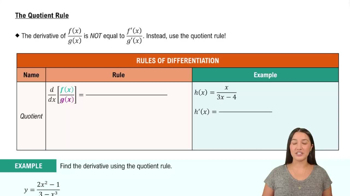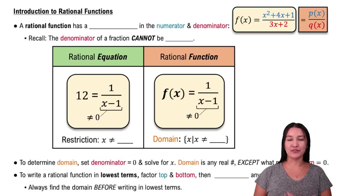Find the limits in Exercises 53–58. Write ∞ or −∞ where appropriate.
lim (x² − 3x + 2) / (x³ − 2x²) as
d. x→2
 Verified step by step guidance
Verified step by step guidance Verified video answer for a similar problem:
Verified video answer for a similar problem:



 5:21m
5:21mMaster Finding Limits by Direct Substitution with a bite sized video explanation from Patrick
Start learning